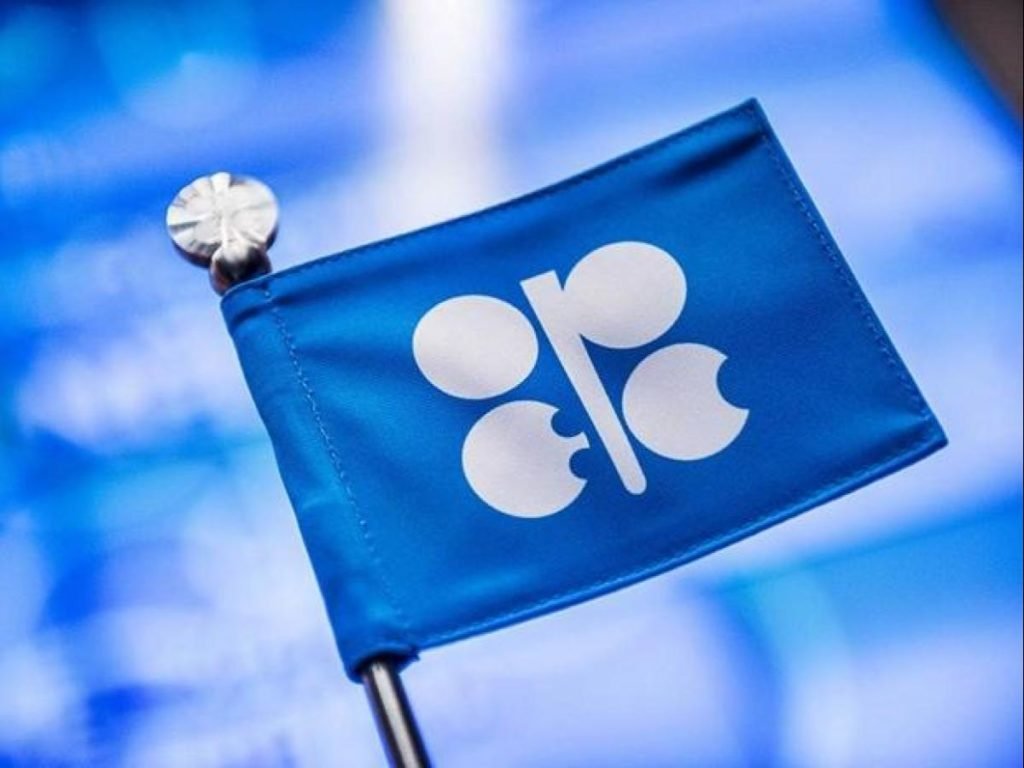A meeting of the group of the most powerful oil producers in the world is set for Thursday to decide on the output policy’s next phase, CNBC reported.
OPEC+ as the group is sometimes called, consisting of OPEC and non-OPEC partners have a virtual meeting scheduled from 1 p.m. London time.
OPEC+ Group To Decide On Output Policy In Meeting On Thursday
In a bid to curb oversupply and support prices, the OPEC+ alliance had been cutting production by just over 7 million barrels per day. An additional 1 million barrels per day had been voluntarily added to the cuts by OPEC kingpin Saudi Arabia.

The meeting comes on the heels of the reopening of the Suez Canal to traffic and with the coronavirus continuing to spread worldwide. Meanwhile, to ease the pressure on hospitals, French President Emmanuel Macron had ordered the third national lockdown in the country.
According to commentators, the ongoing pandemic continued to add an element of uncertainty to the outlook for demand which according to analysts could be expected to be reaffirmed in Saudi Arabia’s caution as regards the global economic recovery.
According to analysts at Eurasia Group, the most likely outcome for the OPEC+ meeting was for the group to continue with the level of production from April and Saudi Arabia’s continued withholding of its additional 1 million barrels per day although it might cut back on this slightly by 100,000 barrels to betoken its willingness to adjust
They noted that in global oil markets, last month, a marked level of volatility could be seen coupled with a sell-off that pulled down Brent crude to $62 a barrel from $70, before the prices found stability at $64 in recent days.
In a research note published Wednesday, analysts at the Eurasia Group said many oil producers gained with the Suez Canal crisis, as it supported prices preventing a further slide.
They added that once again it was not clear whether a sustainable recovery would warrant a strong cycle of OPEC+ tapering on a monthly basis. They said Saudi Arabia’s caution about the global economic recovery seemed appropriate.
International benchmark Brent crude futures were trading at $62.90 a barrel on Thursday, which was 0.3% higher, with U.S. West Texas Intermediate futures up over 0.4% at $59.42.
According to OPEC Secretary-General Mohammed Barkindo, there was need for extreme caution due to the prevailing uncertainties and the coronavirus pandemic induced fragility.
In a similar vein, Saudi Arabia had earlier urged allied partners to be “extremely cautious” regarding production policy and warned the group against complacency as it sought to ensure a recovery in the full oil market.
Meanwhile, non-OPEC leader Russia, had sought that the group push ahead with supply increases.
According to two unnamed OPEC+ sources that spoke to Reuters, an increase in oil production at the meeting would not be expected to be more than 0.5 million barrels. According to CNBC, it was not able to independently verify these sources.
According to Neil Beveridge, a senior oil and gas analyst at Bernstein who spoke to CNBC on Thursday, he thought if one looked into the second half of the year, with potential increases in demand of 4 to 5 million barrels as one got into 3Q and 4Q, he thought that was really when the tightness in oil market would reappear again.
He added at present it felt too early to increase production but as one got into the second half, there was a lot of demand that was pent-up and OPEC would need to put oil in the market if they wanted to control pricing.
Meanwhile, U.S. Energy Secretary Jennifer Granholm said in a tweet, Thursday that she spoke to Saudi Arabia’s Energy Minister Prince Abdulaziz bin Salman reaffirming that international cooperation was important for ensuring reliable and affordable energy sources for consumers.

